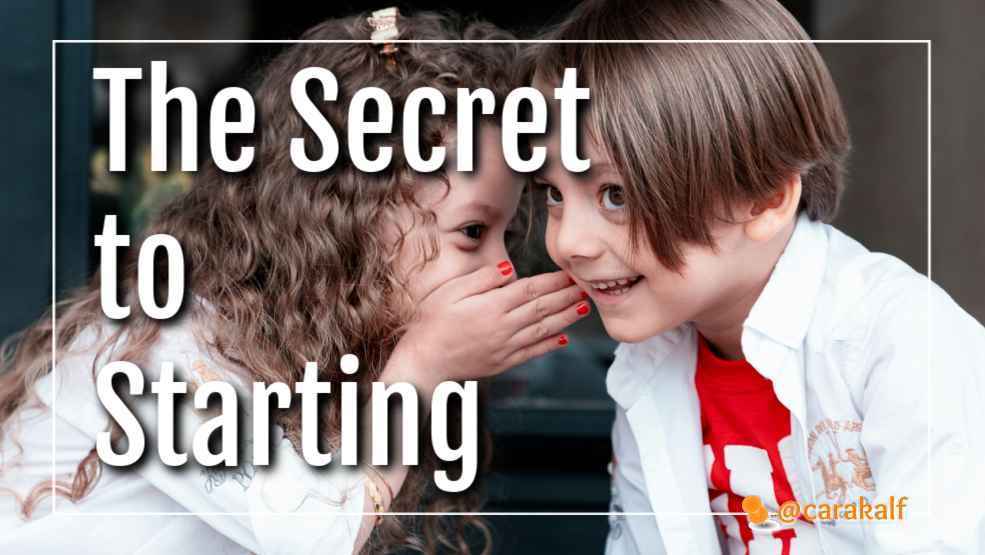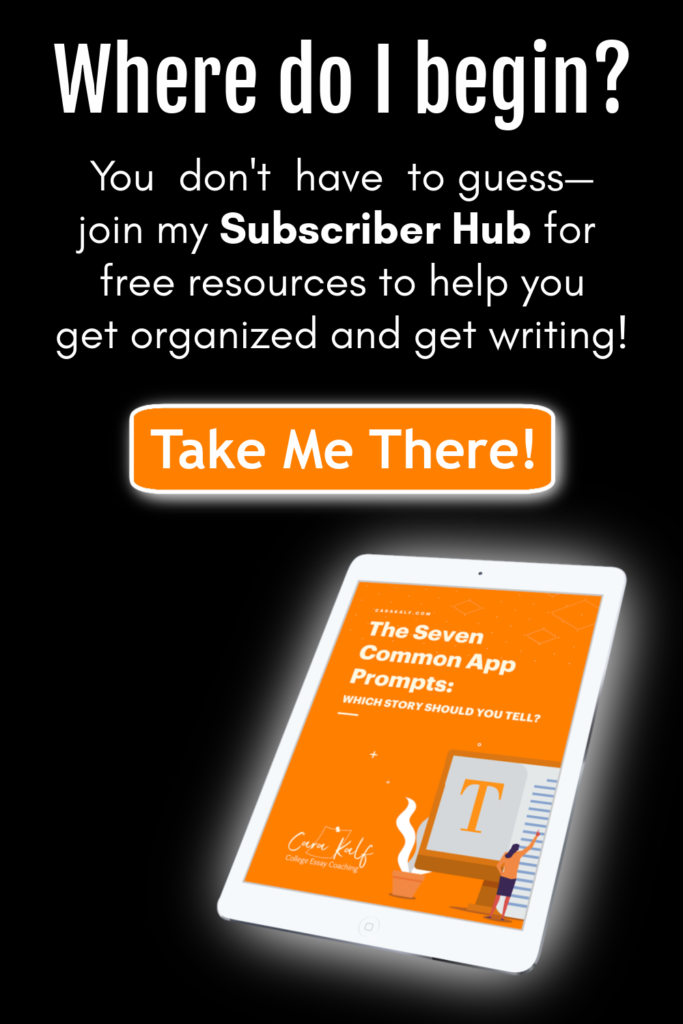Trick for Writers
I’m writing right now with one of my best friends. She has a draft due to her publisher in a week. She has been avoiding it for months. She explains to me what the chapter she is working on is supposed to be about, and as an extension, why she can’t figure out where to start or what exactly she needs to say. I listen to her explanation and I hear her story—the place where her thinking really begins, even though she couldn’t hear it herself. I stop her and tell her, “Right there. That’s where your story starts.” I point to the computer. “Now write.”
I’ve been doing this work so long that sometimes I forget what people mean when they ask this question: How do I start? They don’t mean, structurally, what’s the best place to begin my essay? They mean actually, how do I start putting words on the page? The problem is, in their mind, those are the same question. They want to know, How do I choose a first word that will start me off right?
Usually I remind people that it doesn’t matter where you start because if you continue writing, you’ll tell the whole story in the end. It’s in the editing phase that you need to move words around to the best possible order. But that said, I realize that you need something to kick you off, and your inner editor is so overwhelmed at the task before him that he’s pulling down the grates in front of the window: Sorry, we’re closed!
The Problem You Don’t Recognize
My friend—like my students—didn’t know it, but she really meant, “How do I find a thread to pull on this mess in my head, to start rewinding the ball?” She didn’t know where to start because she had Ideas instead of a Story. That’s not an insult—it’s just a description of the place in her head where the thoughts were living.
I like to picture your mental idea catalog like the room of prophecies in Harry Potter and the Order of the Phoenix—shelves of delicate glass globes, each sparkling with some vague beautiful cloud inside. Your ideas are beautiful and interesting, but you can’t quite touch them. You’re stuck, just admiring the pretty ideas—or worse, trying to describe them from the outside. If you’re struggling to get started, it’s because you’re trying to figure out how to explain the ideas you’ve developed in your life—without telling the story of how you learned them.
Even when you’re writing something that’s philosophical in nature, you need a story. Your reader needs a story, and your brain needs a story—something to latch on to. How did you come to the ideas that are floating around in your head—the philosophy, the growth you’re describing? They came out of the life you have lived. So don’t try to just explain to someone the results of your epiphanies—take them to the start, where you lived through an experience that taught you those lessons. Let them walk that experience with you, and let them come to the conclusions you came to. That’s how you make something that could sound like platitudes instead sound heartfelt. That’s how you take something that might be a “universal truth” and make it yours.
The Simple Trick
So how do you start telling a story? My favorite trick is easy: Try a time and a place. This can be SUPER simple and succinct:
- “It was Friday, first period.” [That implies that the location was school.]
- “It was a rainy Saturday morning near the end of May, and I was headed to work again.”
- “It was the first Monday in October, and soccer practice was canceled.”
This helps your writing mind remember what a simple story sounds like. It puts you into the mindset of writing like a short story or picture book, rather than a summary. It reminds you to include apparently inconsequential details. (Those details may or may not be important later. They may or may not make the final cut. That is not your concern right now.)
Your inner editor is likely to feel anxious about whether such a plain sentence is a good enough beginning for such a momentous piece as your college essay. Now is a good time to remember that the way you begin your prewriting is not necessarily the way you will begin your essay. It might be—or it might not. What you need is a way in to your own story, a way to take the story out of your head and onto the page or screen. Once it is captured, you can decide the best order to tell it in. If it’s still in your head, you have no options at all. I find that a simple beginning like this, if you are going to tell about a particular anecdote, is often a good choice for an essay. But you might cut the whole sentence later, once it has done its job and gotten the story rolling.
Find Your Truth by Writing It
As my friend takes her story into a second page she didn’t know she had in her, she’s astonished by what she is learning. She asks, “Why did I never think of that before?” She is writing truths she didn’t know she knew. I tell her, “You never asked!” Your brain knows, but you have to ask.
This is why I am so passionate about my work—because writers of all ages experience this same epiphany. I didn’t know I was changing like that. I didn’t know that’s why I felt that way. I didn’t realize how much I grew. The college essay is such an incredible growth experience—you’re not only telling a story, you’re re-living it, exploring its moments and details you didn’t even know you noticed, let alone remembered.
So don’t try to write a philosophical treatise or an essay of Great Thoughts. Philosophy is bland, and the Greater your Great Thoughts are, the more general and less interesting they actually become. The more wise you think you sound, the more shallow your writing becomes. Just tell your reader a story.
(Photo by saeed karimi on Unsplash)


